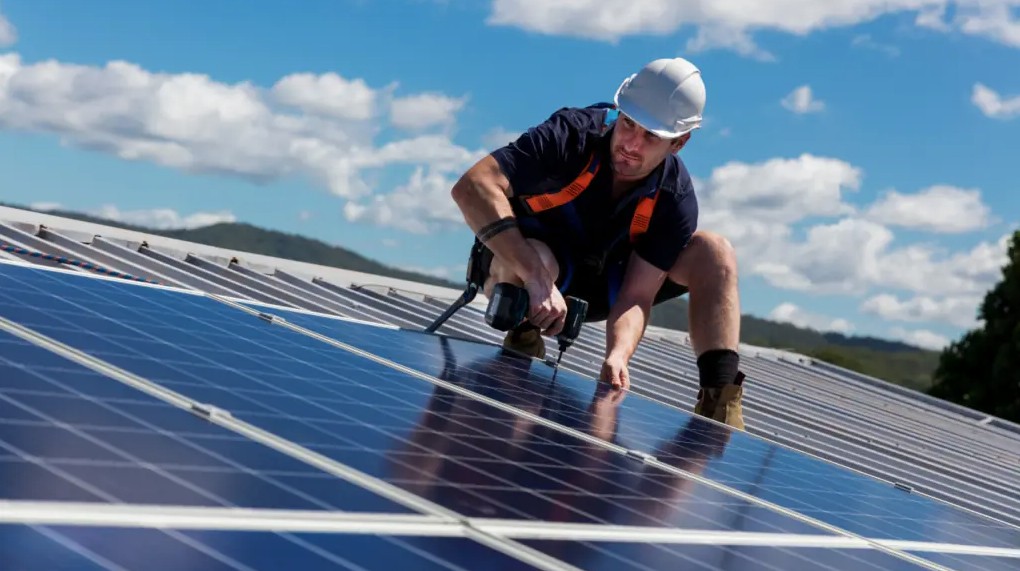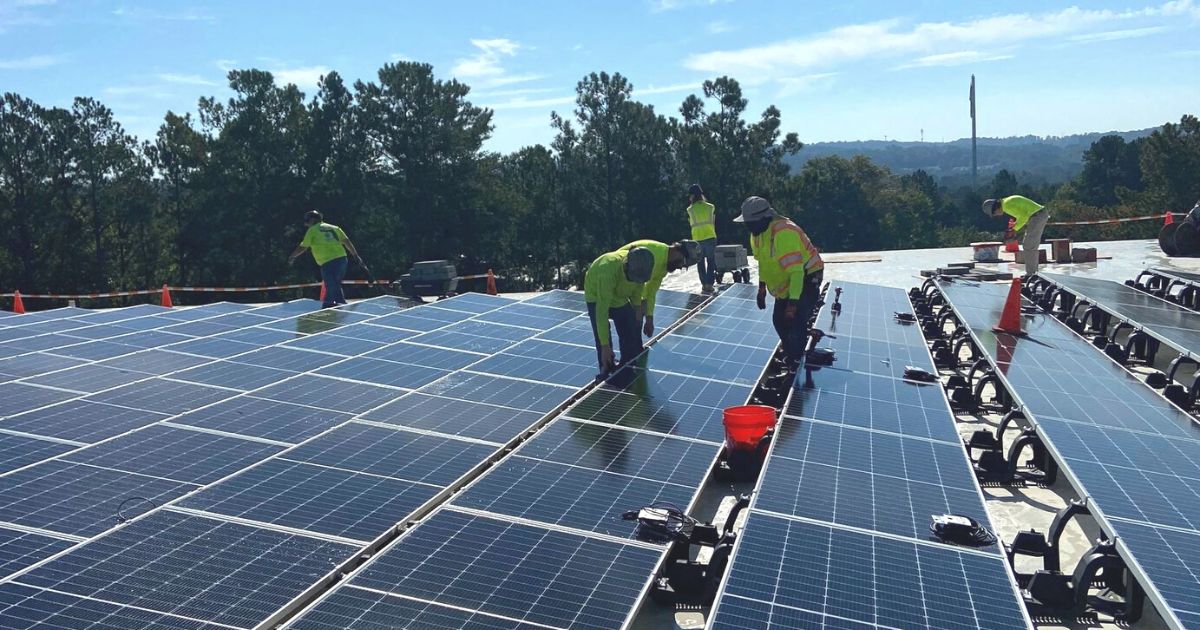The Classic City Rotary of Athens Eco Passport is a year-long initiative to encourage members to engage in eco-friendly activities and promote environmental awareness. Members earn points by completing various sustainable actions, such as recycling, composting, attending environmental talks, and participating in service projects. ECORotary@sosuin.org

Eco Passport Item # 20 – “If possible, install solar panels at your home”
By Salome Alvarez, Southern Sustainability Institute, Athens, GA
Email: Blog@sosuin.org.
As the world increasingly embraces renewable energy, more homeowners are turning to solar panels as a sustainable and cost-effective way to power their homes. While the initial investment can seem daunting, the long-term benefits of installing solar panels extend far beyond just reducing your electricity bill. If you’re considering making the switch, here’s why solar energy is worth it.
A Brief History of Solar Energy
Solar energy is not a new concept. The idea of harnessing the sun’s energy dates back to the late 19th century when the first solar cells were created. However, it wasn’t until the 1950s that photovoltaic (PV) technology, which converts sunlight directly into electricity, gained traction. Over the decades, advancements in technology have made solar panels more efficient and affordable, leading to a significant increase in their adoption. Today, solar energy is one of the fastest-growing renewable energy sources globally, with homeowners, businesses, and governments recognizing its potential.
Why Install Solar Panels at Home?
The decision to install solar panels is about more than just being eco-friendly; it’s a multifaceted choice that brings numerous benefits to your home, finances, and the environment.
- Environmental Benefits: By using solar energy, you’re reducing your reliance on fossil fuels, which are major contributors to greenhouse gas emissions and climate change. Solar power is a clean, renewable energy source that helps reduce your carbon footprint, supporting global efforts to combat environmental issues.
- Cost Savings: One of the most appealing aspects of solar panels is their potential to save you money on your electricity bills. While the upfront cost can be significant, solar panels often pay for themselves over time through savings on energy costs. Many homeowners report lower utility bills immediately after installation, and some even achieve net-zero energy consumption. Additionally, various tax incentives and rebates can help offset installation costs, making solar energy more accessible than ever.
- Energy Independence: With solar panels installed, you become less reliant on your local utility provider. This independence protects you from rising energy prices and gives you more control over your energy consumption. In some cases, homeowners can even sell excess energy back to the grid, generating additional income.
- Increased Property Value: Homes equipped with solar panels often see an increase in property value. Many buyers today are looking for energy-efficient features, and solar panels can be a significant selling point. Studies have shown that homes with solar energy systems sell for more than those without.
- Low Maintenance: Once installed, solar panels require very little maintenance. Most systems come with warranties of 20-25 years, and with minimal upkeep, they can last even longer. Occasional cleaning and inspections are usually all that’s needed to ensure optimal performance.
- Energy Security: In an era of frequent power outages and natural disasters, having a solar energy system, especially when paired with battery storage, can provide peace of mind. You can maintain access to electricity during emergencies, ensuring that your home remains powered when it’s needed most.

Considerations for Installing Solar Panels
While the benefits are compelling, there are a few factors to consider before making the investment:
- Location and Sunlight Exposure: The effectiveness of solar panels depends on your location and the amount of sunlight your property receives. Homes in sunny regions will benefit the most from solar energy, but advancements in technology have made solar panels effective even in less sunny climates.
- Initial Costs: While solar panel prices have decreased significantly, the initial investment can still be considerable. However, financing options, tax credits, and rebates can alleviate some of this burden.
- Roof Condition: Before installation, assess your roof’s condition. It should be structurally sound and ideally positioned to maximize sunlight exposure. If your roof needs repairs or is nearing the end of its life, it’s wise to address those issues before installing solar panels.

How to Get Started
If you’re ready to explore solar energy for your home, here are some steps to guide you:
- Research Local Incentives: Investigate available tax credits, rebates, and financing options in your area. Websites like the Database of State Incentives for Renewables & Efficiency (DSIRE) can help you find relevant programs.
- Evaluate Your Energy Needs: Assess your energy consumption and determine how much solar power you’ll need to meet your requirements. This will help you choose the right system for your home.
- Consult Professionals: Reach out to reputable solar installation companies to get quotes and assess your property. A professional will provide valuable insights into the best options for your specific situation.
- Compare Options: Look at different types of solar panels and inverters. Consider factors like efficiency, warranty, and price to make an informed decision.
- Schedule Installation: Once you’ve chosen a company and finalized your system, schedule the installation. The process typically takes one to three days, depending on the size of your system.

Resources for Solar Energy
- Solar Energy Industries Association (SEIA): A comprehensive resource for information on solar energy, including policy updates and industry trends.
- Database of State Incentives for Renewables & Efficiency (DSIRE): Find state-specific incentives, rebates, and financing options for solar energy.
- Energy.gov: The U.S. Department of Energy’s website offers resources and guides on solar energy and its benefits.
Installing solar panels at home is a powerful way to contribute to a more sustainable future while enjoying substantial financial benefits. By harnessing the sun’s energy, you not only save on energy costs but also support the broader movement toward renewable energy. So, if you have the opportunity, consider making the switch to solar—you’ll be making a choice that benefits you and the planet.
Resources:
https://gasolarenergyspecialists.com/athens-ga/
https://www.altenergyse.com/our-services/solar-installation-info/
